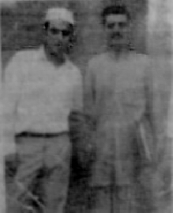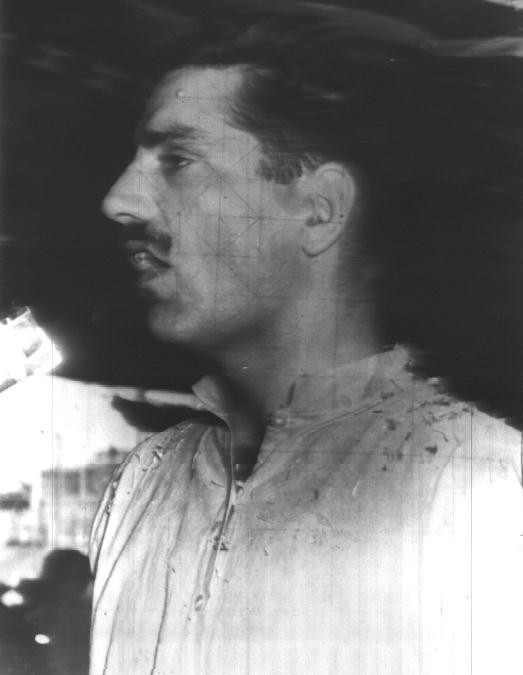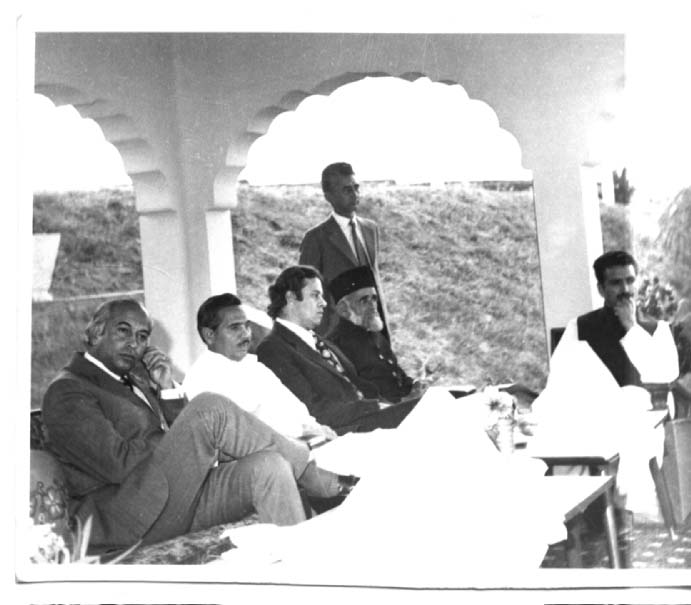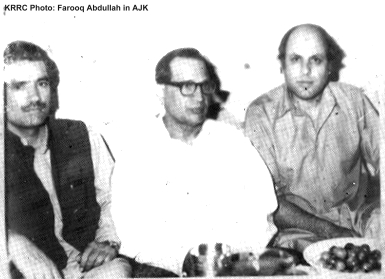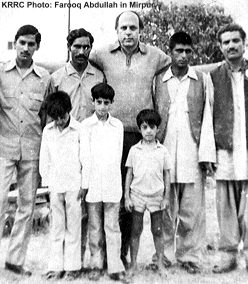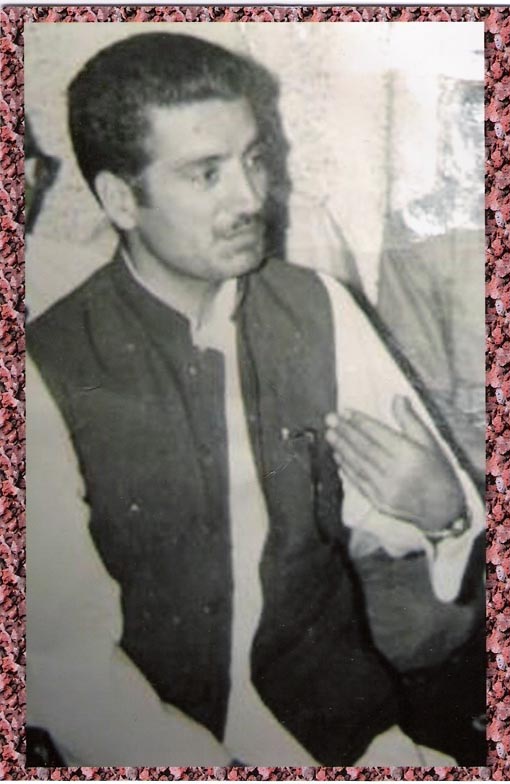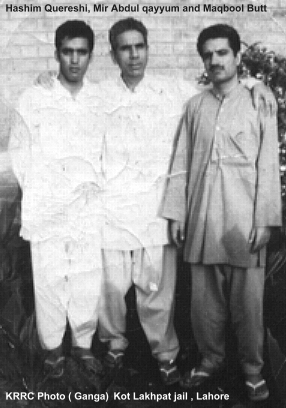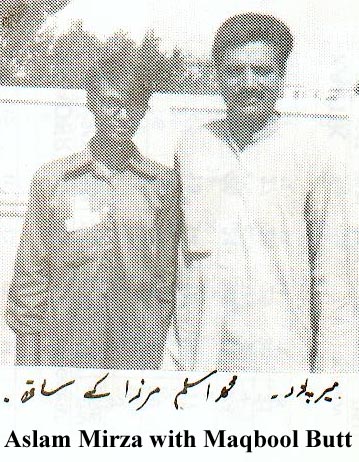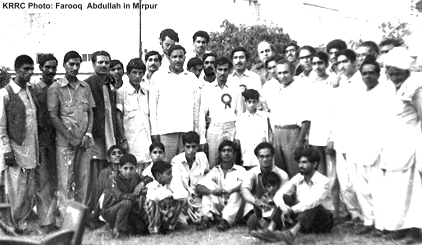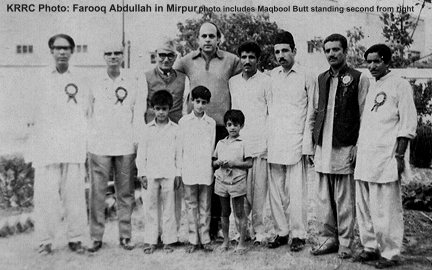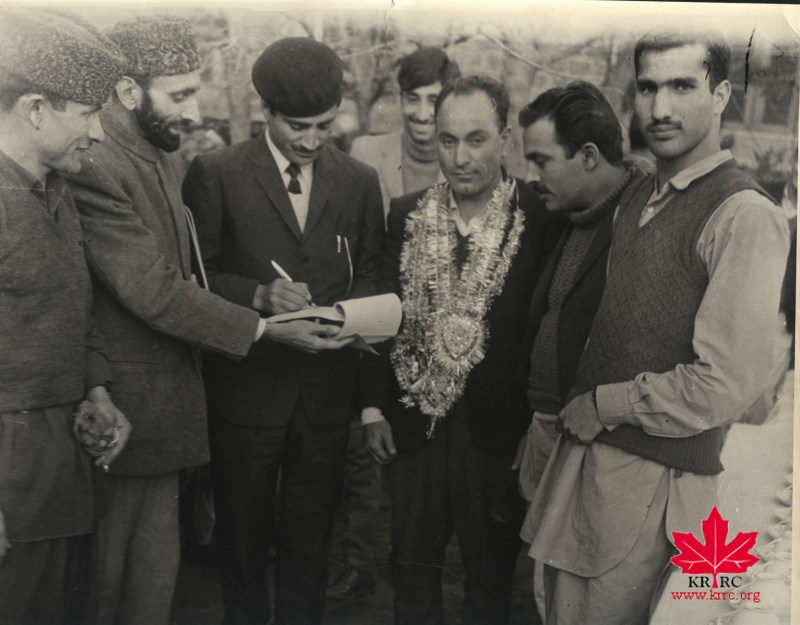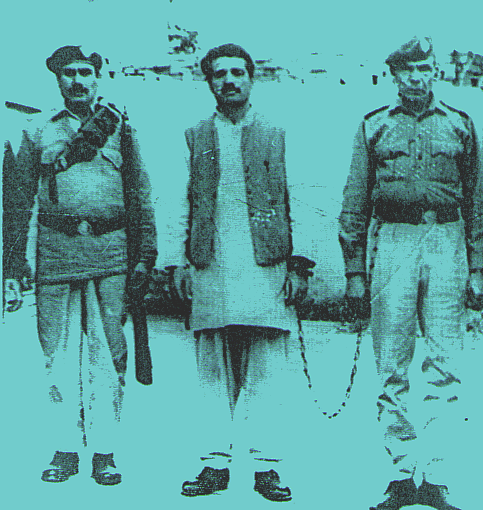First and foremost problem before Maqbool Butt in Pakistan was to continue his education and at the same time find a job to meet the expenses. For with out that “it was hard to live in Pakistan’. Therefore, I joined ’Injam’ (end/conclusion/performance), a weekly magazine, as sub-editor and started my working life as a journalist. I did my MA (from Pehswar university) in Urdu literature and worked with ‘Anjam’ till the start of full time politics in 196 (Khawaja, 1997). Meanwhile his marriage was arranged by his uncle with a Kashmiri woman Raja Begum in 1961. He had two sons from this wife, Javed Maqbool born in 1962 and Shaukat Maqbool in 1964. In 1966 he married to a school teacher Zakra Begum and had a daughter Lubna Maqbool from her.
Politics
In 1961 Maqbool Butt contested and won the Kashmiri diaspora seat from Pehsawar, Pakistan in the ‘Basic Democracy’ elections introduced by the then president of ‘Azad’ Kashmir, Khurshid Hassan Khurshid, commonly known as K.H. Khurshid. Soon after that he campaigned for K.H. Khurshid in presidential elections and for GM. Lone in the Kashmir State council elections. Both of the candidates came out victorious on their respective positions. But when Pakistan started the operation Gibraltar by sending militants across the Indian occupied Kashmir to capture Kashmir Maqbool Butt said farewell to the ‘election’ politics and offered his services to the Pakistani authorities but was rejected. This incident had radical affects on the political approach of Maqbool Butt. At this point there existed in Pakistan a ‘Kashmir Independence Committee’ (KIC) formed on 12th May 1963 by middle class Kashmiri activists including journalists, students, businessmen and lawyers to oppose the proposals by the Pakistani and Indian foreign ministers for dividing Kashmir on communal basis. This committee was headed by the Kashmir State Council member GM Lone who few years back Maqbool Butt campaigned for. After the end of India Pakistan talks without any conclusion the committee also became inactive.
Meanwhile inside ‘Azad’ Kashmiri a ‘United Front’ of various political groups, voluntary organisations, shopkeepers associations and intellectuals got together to resist the construction of Mangla Dam paved the way for pro-independence politics. In April 1965 the political activists from ‘Azad’ Kashmir and members of KIC got together and crossed into Suchetgarh, a Kashmiri village inside the Indian occupied areas of Kashmir near the Pakistani city of Sialkot, and formed the ‘Jammu Kashmir Plebiscite Front here after PF. Maqbool Butt was elected as Publicity Secretary for this first pro-independence political organisation of some significance in ‘Azad Kashmir’ that later gave birth to most of the pro-independence groups on the Pakistani occupied side of the division line including Jammu Kashmir National Liberation Front (NLF) headed by Maqbool Butt and Jammu Kashmir Liberation Front (Britain) led first by Abdul Jabbar Butt and later by Amanullah Khan and Yasin Malik. Abdul Khaliq Ansari, the veteran pro independence voice in ‘Azad’ Kashmir, and Amanullah Khan, now the head of JKLF (A) were elected president and general secretary of PF respectively.
This was the time when several national liberation struggles were echoed across the world. Maqbool Butt along with many Kashmiris in PF was also very much inspired by these struggles particularly those in Algeria, Palestine and Vietnam. According to Amanullah Khan, a proposal to adopt armed struggle as an objective of Plebiscite Front was presented before the working party meeting of PF on 12th July 1965 in Mirpur but was defeated. However, Maqbool Butt, Amanullah Khan, Mir Abudl Qayyum, a Kashmiri migrant from Jammu settled in Pakistan and a middle class businessman, and Major (R) Amanullah from Highhama town of Kashmir who fought in the world war and served in the Indian National Army of Subash Chandar Bose and also participated in the Azad Kashmir war of 1947, secretly formed ‘The Jammu Kashmir National Liberation Front’ (NLF) on 13th August 1965 at the residence of Major Amanullah in Peshawar. The aim of this organisation was written down in just one sentence, “including armed struggle using all forms of struggle to enable the people of Jammu Kashmir State to determine the future of the State as sole owners of their motherland” (Khan, 1992, p.112).


